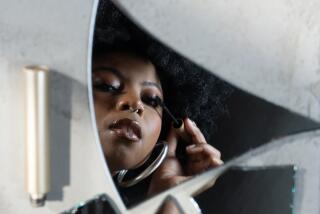- Share via
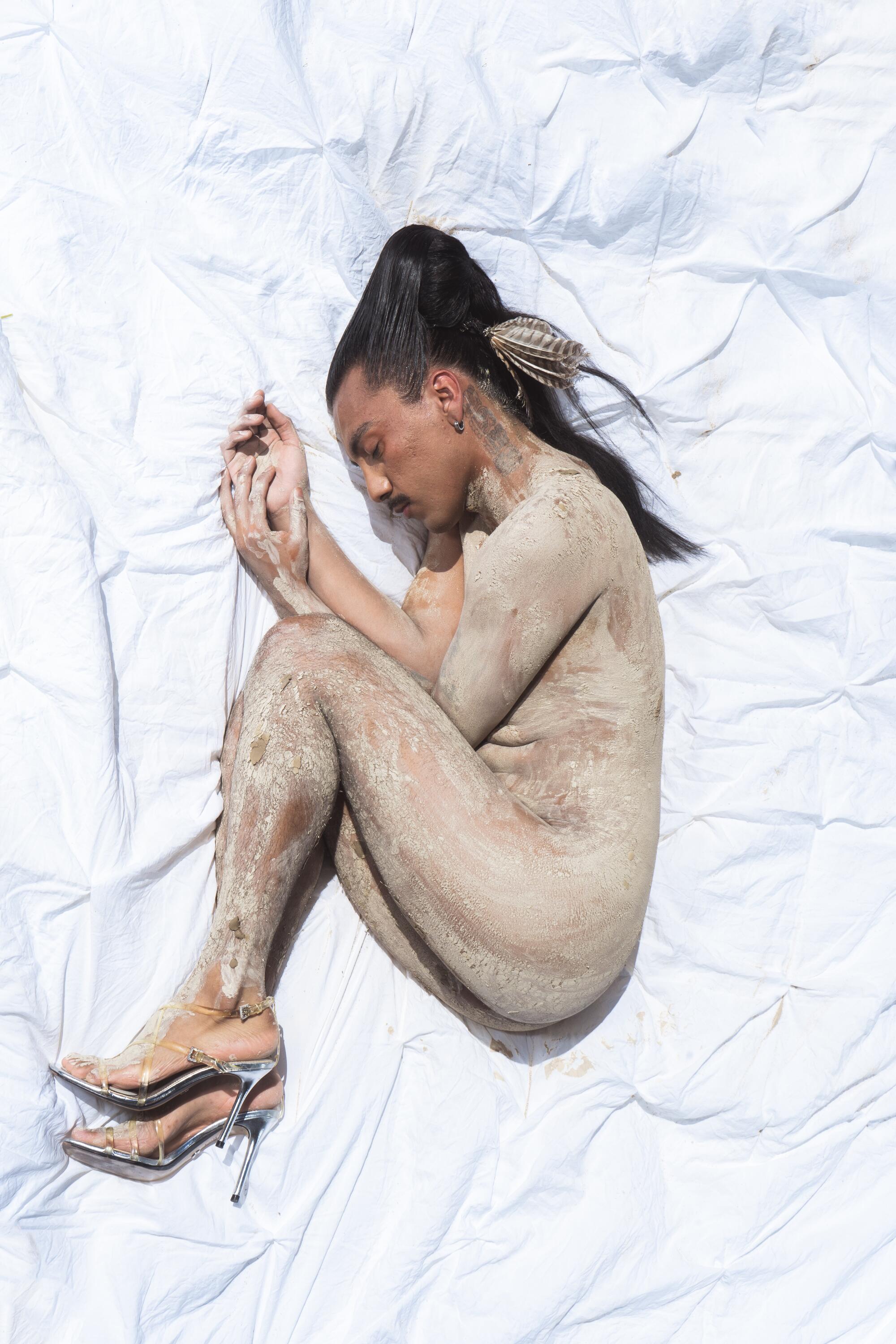
This story is part of Image’s October Luxury issue, exploring what luxury really means to artists, designers, aestheticians, architects and more.
A skin, hair or makeup routine is never just a skin, hair or makeup routine. We dived deep into the beauty rituals of artists and aestheticians across L.A., and in turn learned more about their relationships to themselves and the world around them. A beauty ritual is as much personal as it is a portal: to better versions of ourselves, to better versions of the future. For Sebastian Hernandez — a creative director, performance artist, conceptual artist, mover and DJ who runs the party You Los Angeles — beauty doesn’t happen without ugliness. For Hernandez, this dichotomy is best played out in a bed, incorporating elements of the earth. As they put it, beauty is “subjective but also not true. It’s mythic and fantasy.” Hernandez will be showing a new performance work, “Echo,” for the Performance Art Museum on Oct. 15.
I was having a really hard time being a part of the shoot, in a sense, because I was like, “Is this some thing that I believe in? Do I even think about myself as having a beauty ritual?” I was born and raised in Los Angeles so I feel the lifestyle here that I’ve gravitated toward is already embedded with so many subconscious beauty rituals: working out, finding something to wear every other weekend. Maybe it’s also cultural too. I’m Mexican, and my parents have always been people that just really like to get dressed.
Artist Tanya “Nena” Melendez on making her original hairpieces.
I was having to sit down and be like, “OK, what is it that you do?” One thing I am starting to afford myself more now, as I’m getting older, is more sleep and focusing on being able to rest and nap. It felt like it was a very juicy site for the things that I wanted to talk about: bed and rest, the image of my body resting, and it having more than one simple interpretation. I brought in an element of earth, which is the clay that we used, and we brought in some flowers. I played with this idea of how to convey this message. I hearkened it back to, “What is actually beautiful? And do I believe in it?” Did humans appropriate the term beautiful from nature to cast it upon itself? Maybe nature was actually the original beauty of the world.
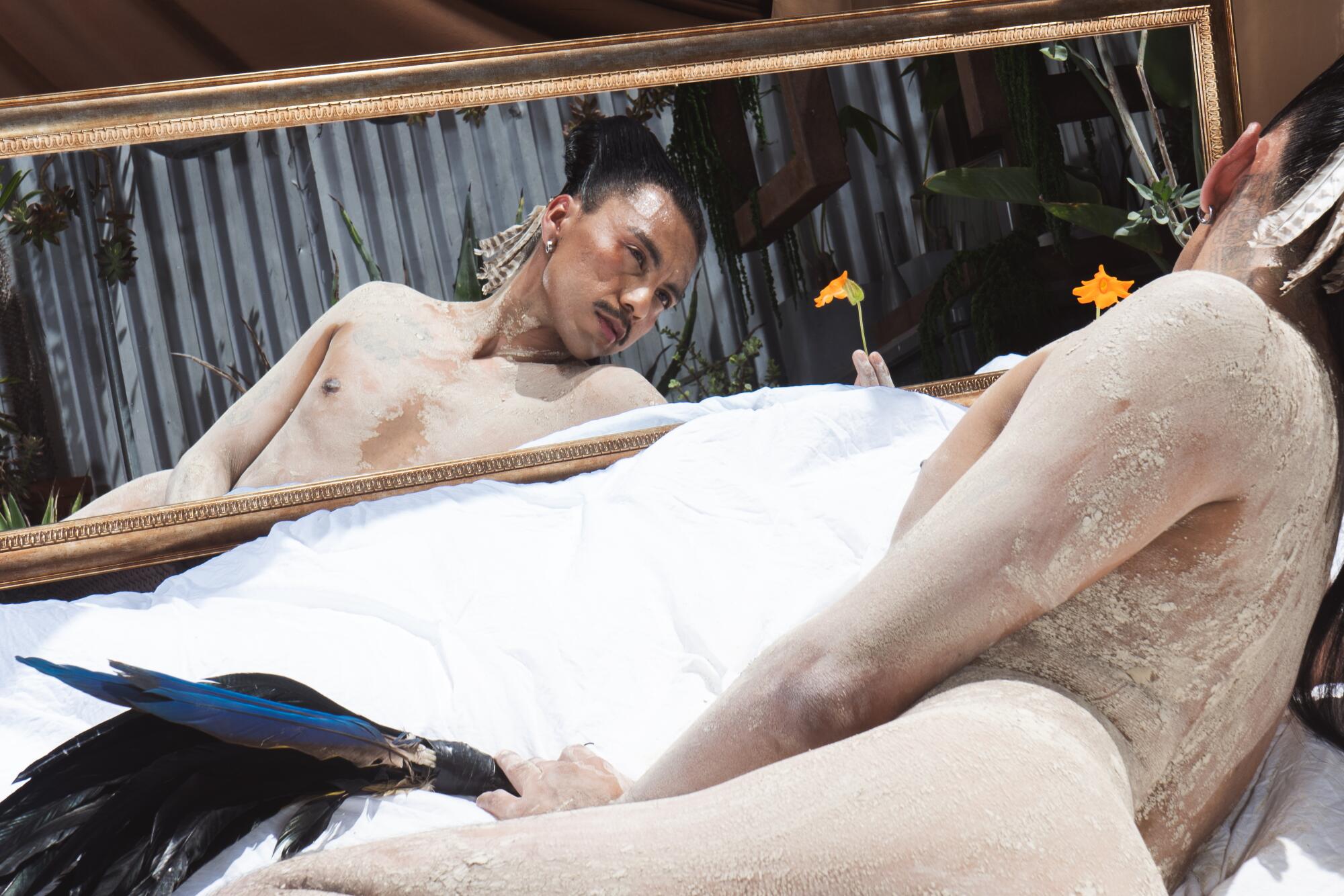
“What is actually beautiful? And do I believe in it?” Did humans appropriate the term beautiful from nature to cast it upon itself? Maybe nature was actually the original beauty of the world.
— Sebastian Hernandez
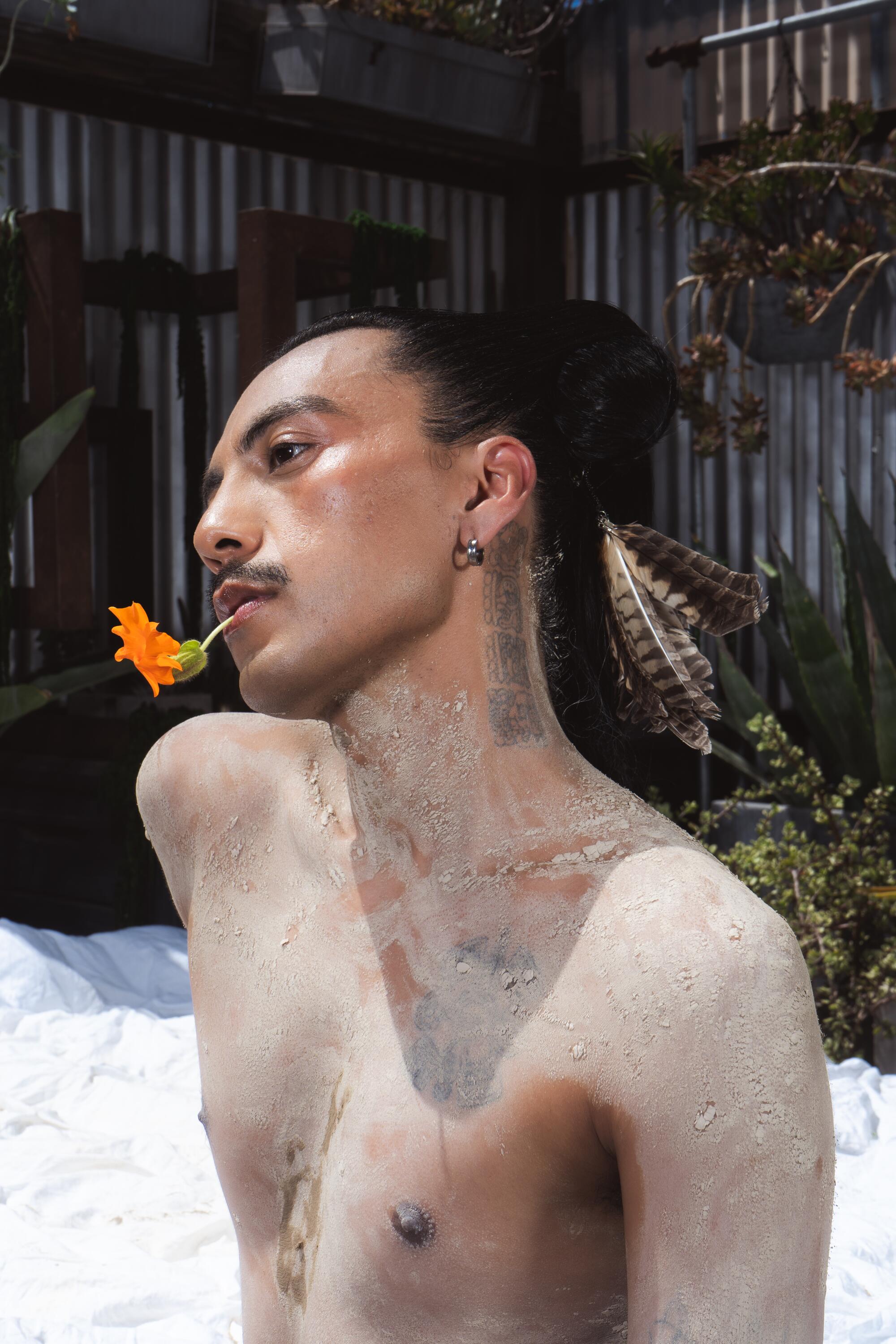
I started to think about beauty in that way, and how nature is serene, but it could also be violent in its natural way. This concept of ugly and beautiful. I pushed it a little further — just as much as I want to rest and for that to be some recuperative, generative ritual that will help me look beautiful, the bed can also be the site of a lot of contemplation about the world and the things that are happening outside my safe place. I’m in my bed a lot, and I’m laughing sometimes on Twitter [now known as X]. It’s crazy — you’re scrolling and you’re laughing at tweets, but then the next tweet will be people self-immolating in response to the genocide of Palestinian people, or the gamut of things at the border. It’s never ending. There’s a beautiful and an ugly, light and dark concept in bed for me. When I was thinking about this image, I was thinking about Palestine and just the interconnected web of imperialism to oppression and genocide. Also, the struggle of Indigenous people all across the world, including Mexico and Oaxaca, across borders and migrants in general trying to find peace and safety anywhere in the world.
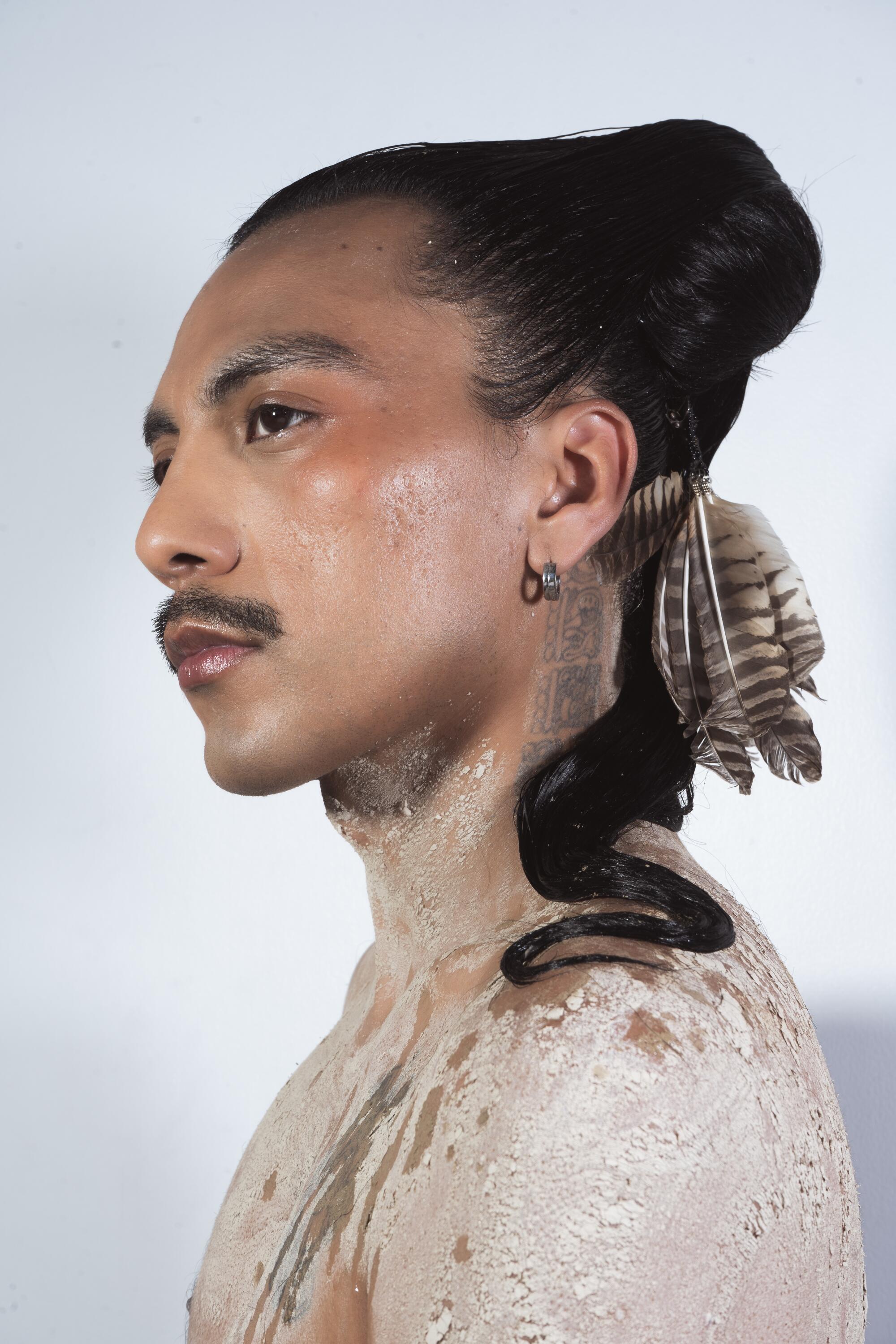
When I looked back on my life and my upbringing, I had a contrived association with beauty because I didn’t see myself in the media growing up. The beauty aspect hasn’t been some thing that’s been easy. I grew up in a Mexica Indigenous tribe circle called Xipetotec, led by Lazaro Arvizu. At the beginning, I was not excited. My parents forced me and my sister to join the group with them. There was some internal kind of self-hate, cultural hate in some ways. I was born into the Mormon church, so there was that colonialism happening in my consciousness, on top of self-hate because of repression of my sexuality. All these things were a big part of being a first-generation Mexican American. There was also bullying when I was in middle school that happened for not only my sexuality, my femininity, but also my skin color. Going back to Xipetotec, I feel like that’s an important part of my core, my identity and understanding of my own connection to Indigenous culture. Also, the preservation of my people and my ancestors in today’s society, where we are as Indigenous people, our sovereignty and how we share land with other people that have been displaced on their own.
Beauty is subjective but also not true. It’s mythic and fantasy. In regards to society and times that we are in, the way I’m feeling is that there’s no beauty in the world right now. There’s never been peace, there’s always been colonization, it’s always been a fight and a struggle and violence. I have the privilege to sit and think and be an artist and put my best foot forward and offer something that will make people think differently about the world. Maybe beauty is in the future, and I can’t wait for beauty to actually be here.
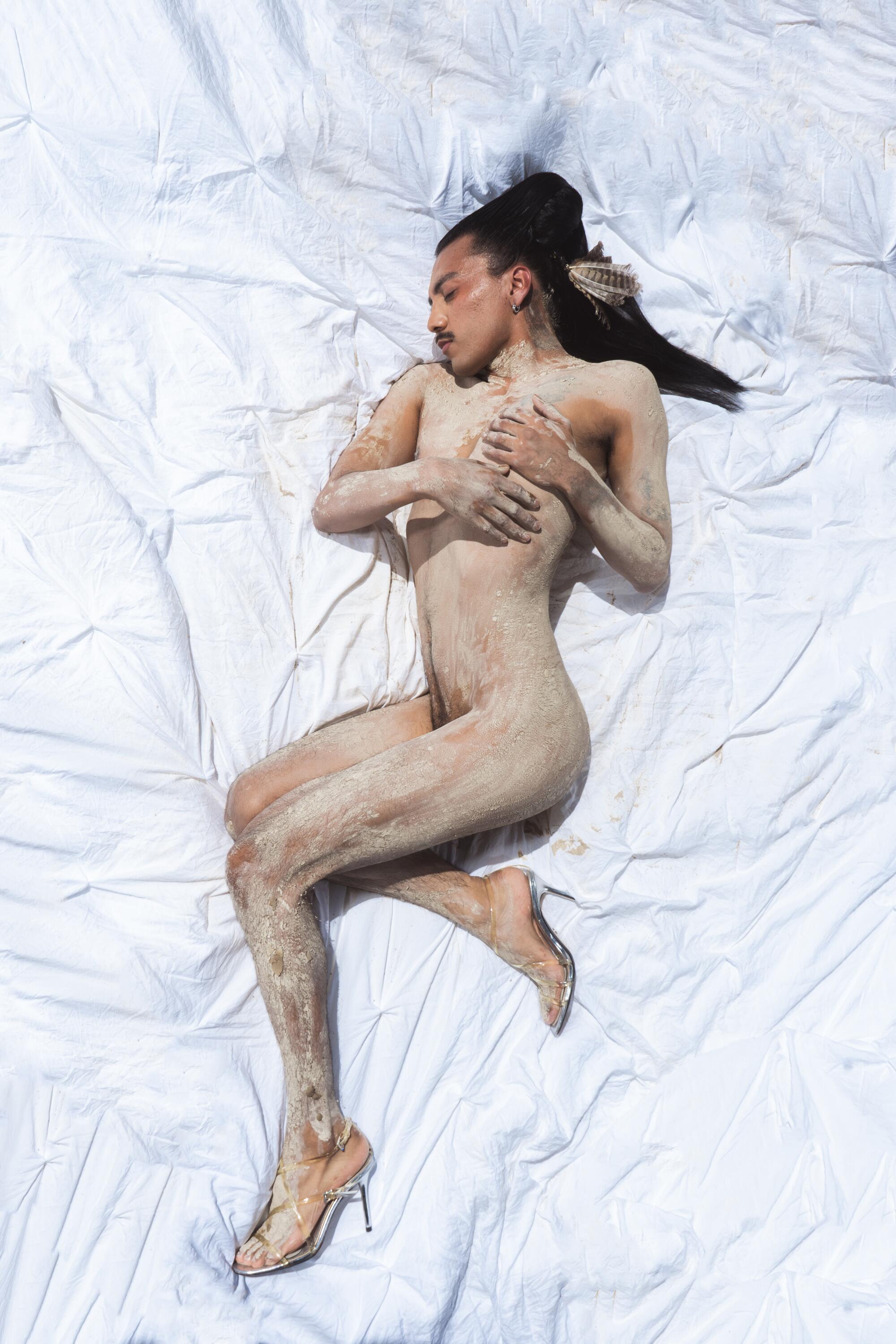
Creative direction Sebastian Hernandez
Hair & makeup Tanya “Nena” Melendez
Prop styling Synthea Gonzales
Production Mere Studios





